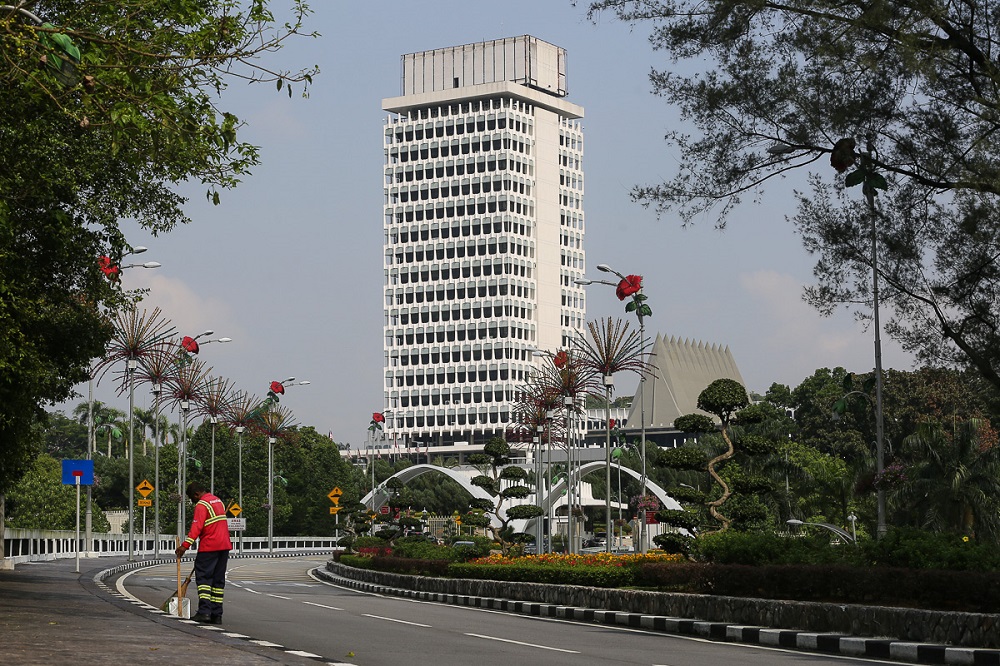NOVEMBER 25 ― I shared the legislative history of the legal provision on “Benefits for former prime ministers” for good reasons.
Legislative history has a role in interpreting and understanding the context of a legal provision. It forms the backdrop and the foundation of the understanding of the legislation or provision. As such, it is always useful to narrate the legislative history and genesis of a legal provision.
Section 8 of the Members of Parliament (Remuneration) Act 1980 (Act 237) states that a Member of Parliament shall be entitled to such pension, gratuity and other benefits as are prescribed in the First Schedule.
The First Schedule has a history of its own. It has been amended a number of times. The first major amendment was to insert paragraphs 19A and 19B.
Pursuant to, and in exercise of the powers conferred by paragraph 19A of the First Schedule, paragraph 21 ― “Benefits for former prime ministers” ― was inserted and deemed to have come into force on June 9, 1981.
The order was made vide the Members of Parliament (Remuneration) (Amendment of First Schedule) Order 1981 [PU(A) 216/1981].
So this year is the 40th anniversary of the provision.
Paragraph 21(1) as it is now is pursuant to amendments in 2003 vide the Members of Parliament (Remuneration) (Amendment of First Schedule) (No. 3) Order 2003 [PU(A) 236/2003].
The prime minister was then Datuk Seri Dr Mahathir Mohamad, who left the office of the prime minister in October 2003.
In his own words, Mahathir sought to explain the amendments as follow:
“Pindaan itu bertujuan untuk Kerajaan menimbang memberi sedikit ganjaran kepada bekas Perdana Menteri sebagai mengenang jasa mereka. Biasanya ganjaran yang diberi ialah rumah Kerajaan yang sedia ada.
Ia tidak bertujuan untuk memberi kemewahan atau kekayaan kepada bekas Perdana Menteri.”
With due respect, the above explains the reason for paragraph 21 but not for the amendments in 2003.
The reason for a law is the best way to understand it. In Utkal Contractors and Joinery Pvt Ltd and others v State of Orissa and others (1987), Justice Chinnappa Reddy of the Indian Supreme Court, said:
“A statute is best understood if we know the reason for it. The reason for a statute is the safest guide to its interpretation. The words of a statute take their colour from the reason for it.”
In another case ― a Reserve Bank of India v Peerless General Finance and Investment Co Ltd and others (1987) ― the same judge said:
“The statute must be read, first as a whole and then section by section, clause by clause, phrase by phrase and word by word … [No] word of a statute can be construed in isolation.”

Based on the above, one can agree with legal experts that a former prime minister is entitled to allowances and privileges at such rates and on such terms and conditions as may be determined by the Cabinet from time to time.
This much is clear: the Cabinet determines the entitlements. At the same time, the Cabinet must know that the reason for paragraph 21 is the safest guide to determining the entitlements ― that is, not to give luxuries to, or enrich, a former prime minister.
Perhaps we can agree that the matter should be entirely for Parliament to determine, and not the Cabinet. The legislature offers a process that is arguably better at determining the “benefits for former prime ministers” in appreciation of their services to the country and nation.
Importantly, Parliament can legitimately determine the matter.





















